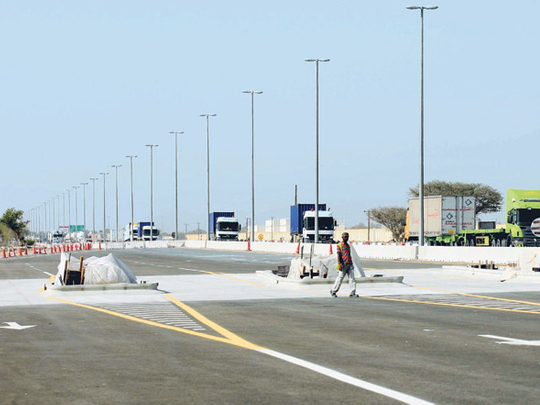
The toll of Dh100 on trucks and heavy vehicles on the Al Dhaid Road is too high. It is a huge increase to the cost of doing business and the extra expense will be passed on directly to the recipients of the goods being transported. This will lead to an increase in the prices of the goods being moved. In addition, many of the trucks using that road are driven by drivers who manage their own businesses and are not part of any large transport company. So this fee will hurt their abilities to operate.
That said, the Government of Sharjah needs to generate revenue to maintain the roads passing through the emirate. The roads need to handle very heavy usage, as large numbers of trucks pass through Sharjah on their way to the ports on the East Coast and very large numbers of trucks carry rocks, gravel and other products from the quarries in the north of the UAE to the different construction sites in Dubai and Abu Dhabi.
The answer should lie with the federal government. The Ministry of Economy is tasked with handling transport strategy and the Ministry of Public Works maintains the roads. It is a federal responsibility. These two ministries should develop plans on managing the UAE's national road network and charging the users. They should then coordinate with the governments of the respective emirates on how to implement the toll fees, which should look into both the impact of the charges on the users as well as allocation of revenues.
In a few weeks' time, the UAE will have the new Sharjah truck tolls and Dubai's Salik charges. Other emirates may follow suit with their own plans. It is not desirable to have a free-for-all in implementing road tolls.








